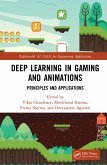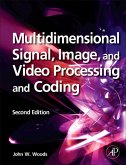It can be used as a course for juniors or seniors in computer engineering and electrical engineering, and can also be used to teach students in other scientific disciplines important concepts in computing. For electrical engineering, the book provides the fundamentals of computing that link core concepts to computing. For computer science, it provides foundations of key challenges such as power consumption, performance, and thermal. The book can also be used as a technical reference by professionals.
- Links fundamental physics to the key challenges in computer design, including memory wall, power wall, reliability
- Provides all of the background necessary to understand the physical underpinnings of key computing concepts
- Covers all the major physical phenomena in computing from transistors to systems, including logic, interconnect, memory, clocking, I/O
Dieser Download kann aus rechtlichen Gründen nur mit Rechnungsadresse in A, B, BG, CY, CZ, D, DK, EW, E, FIN, F, GR, HR, H, IRL, I, LT, L, LR, M, NL, PL, P, R, S, SLO, SK ausgeliefert werden.









